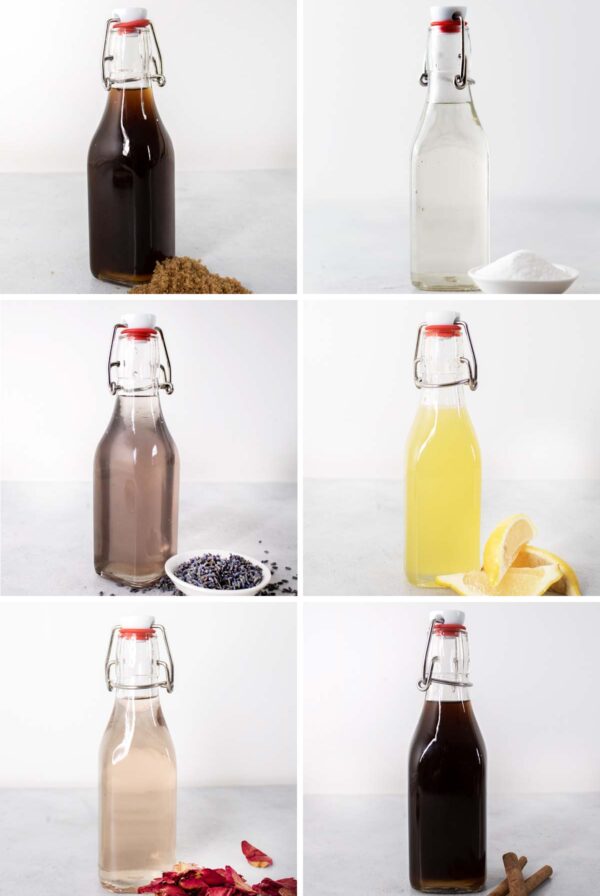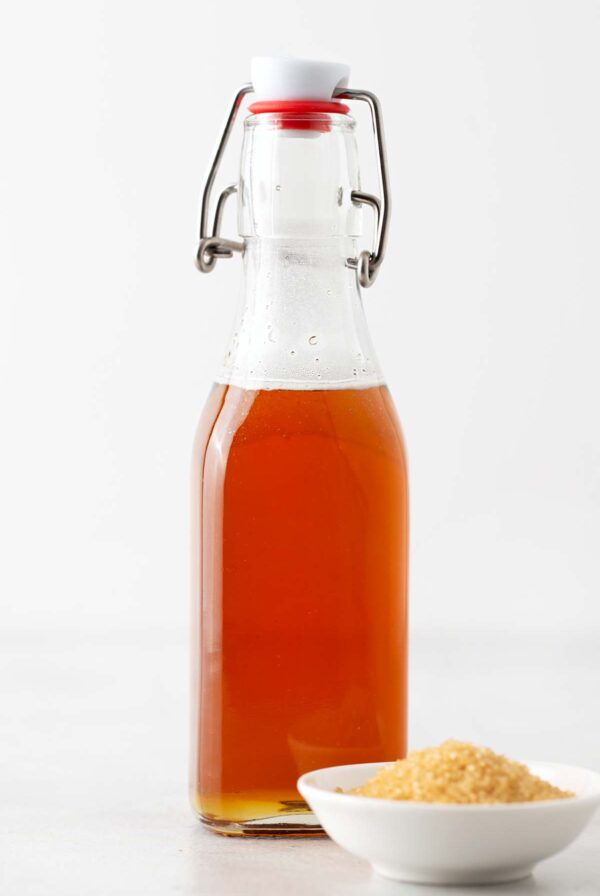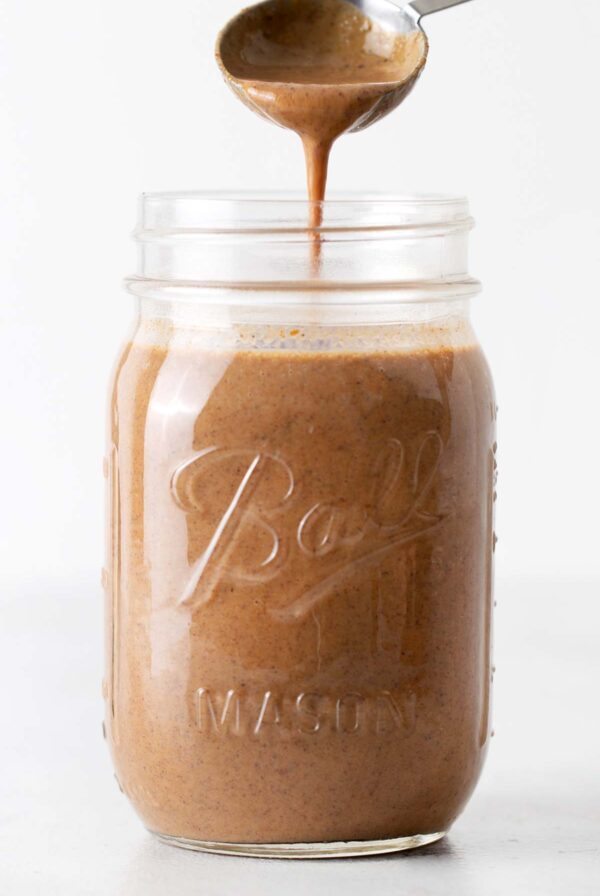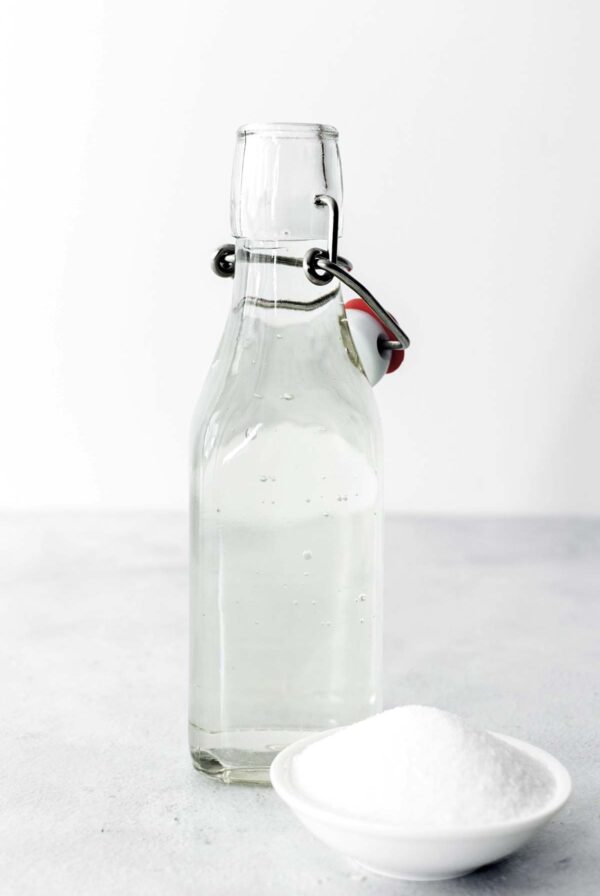Benefits of Drinking Hibiscus Tea
on Nov 02, 2023
This post may contain affiliate links. As an Amazon Associate, I earn from qualifying purchases.
Hibiscus tea is a tart herbal drink that’s high in essential nutrients. Learn about its health benefits and how it can help the body.
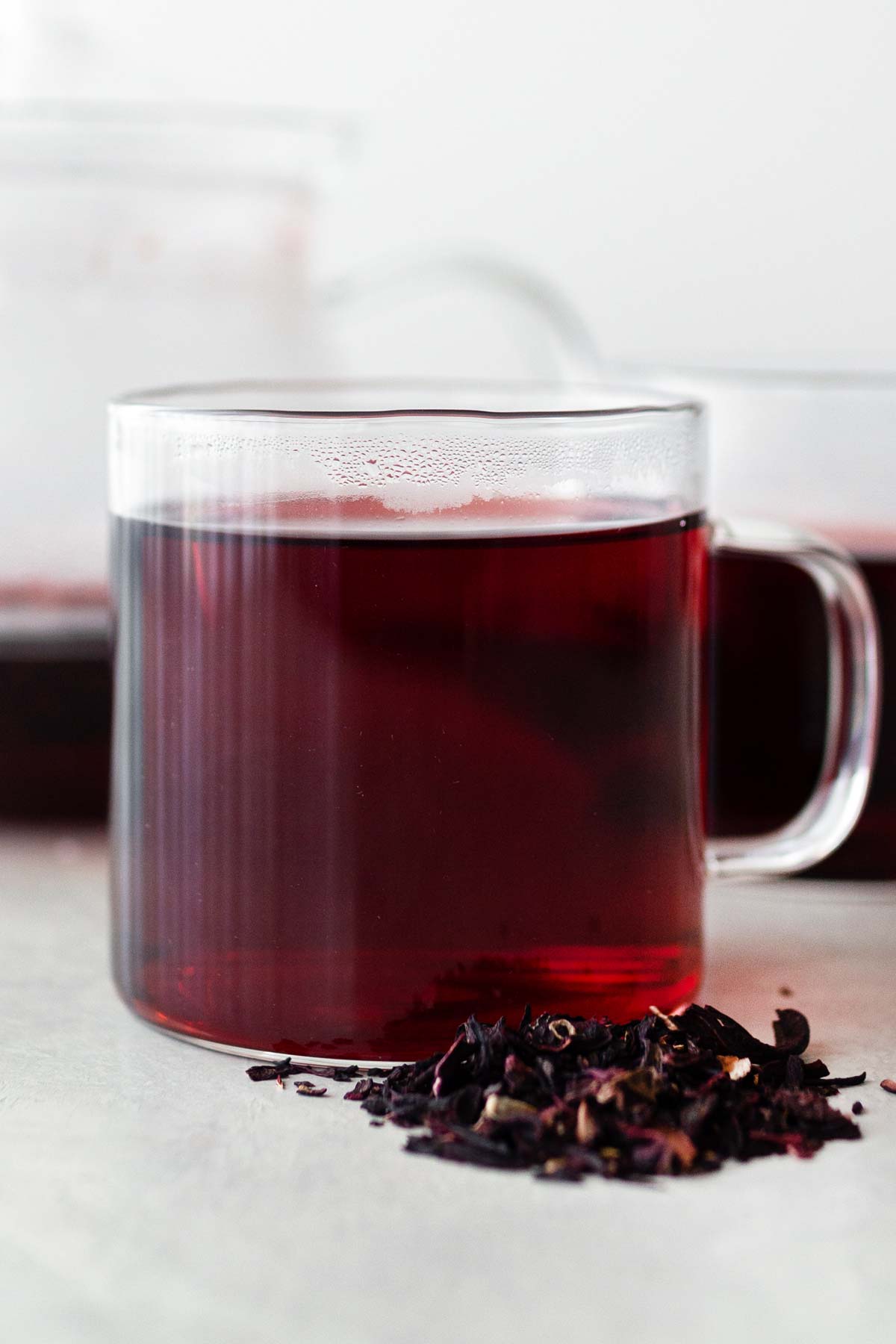
What Is Hibiscus Tea?
Hibiscus tea is an herbal drink made of dried hibiscus calyces steeped in water. The calyces are the part of the plant that supports the flowers’ petals.
The tea is caffeine-free and packed with nutrients. It’s also naturally bright red, which comes from antioxidant plant pigments called anthocyanins.
Native to Asia, hibiscus grows in tropical parts of the world. The calyces are often used in tea, but it’s used to naturally dye foods and drinks as well.
15 Hibiscus Tea Health Benefits
1. Contains Antioxidants
Hibiscus is an excellent source of antioxidants, or compounds that fight oxidative stress. Examples include vitamin C, flavonoids, and anthocyanins.
This can improve your health, as too much oxidative stress can lead to chronic conditions like cancer and heart disease.
2. Decreases Inflammation
Drinking hibiscus tea is a natural way to lower inflammation.
The antioxidants in hibiscus have anti-inflammatory effects. This includes the anthocyanins.
It’s essential to control inflammation because it can contribute to diseases like cancer, heart disease, and arthritis.
3. Supports Brain Function
Oxidative stress and inflammation can damage nerve cells, or neurons, over time. This could increase the risk of brain disorders.
Hibiscus tea might reduce the risk, as it has antioxidant and anti-inflammatory compounds. They work by protecting the neurons.
4. Aids Eye Health
As a source of vitamin A, hibiscus tea supports eye health. Vitamin A is needed for good vision.
The anthocyanins in hibiscus are helpful too. According to research, they boost blood circulation in the eyes, which is beneficial for preventing eye disease.
5. Manages Blood Pressure
Drinking hibiscus tea is beneficial for high blood pressure, also called hypertension.
It works by by dilating, or widening, the blood vessels. This improves blood flow, which decreases the pressure of the blood.
High blood pressure can lead to heart disease over time, so it’s important to control.
6. Controls Cholesterol
Low-density (LDL) cholesterol is known as “bad” cholesterol. That’s because high levels of LDL cholesterol can harden your blood vessels, increasing the risk of heart disease.
Hibiscus can reduce LDL cholesterol. This may protect your heart and lower the chances of heart disease.
7. Promotes Healthy Weight
Metabolism controls many functions in the body, including weight.
Hibiscus has been shown to regulate metabolism, which could help control weight.
This is beneficial if you want or need to manage your weight.
8. Improves Liver Health
Too much inflammation can increase the risk of liver disease, like non-alcoholic liver disease. But the anti-inflammatory properties of hibiscus may help.
Plus, as hibiscus lowers LDL cholesterol, it decreases liver damage. This may keep the liver healthy over time.
9. Fights Bacteria
The antioxidants in hibiscus flowers have anti-bacterial properties, which means they can reduce bacteria.
They work by destroying the cell membrane, or wall, of bacteria.
This effect might hep control bacteria in the mouth, including those that cause gum inflammation.
10. Regulates Blood Sugar
After eating a meal, it’s normal for your blood sugar to rise. But if increases too much or too often, it may lead to diabetes.
Hibiscus tea can reduce post-meal blood sugar, potentially preventing diabetes.
Additionally, hibiscus increases insulin, the hormone that controls blood sugar.
11. Helps Immunity
Another hibiscus tea benefit involves the immune system. It’s all thanks to the high vitamin C content of hibiscus.
Vitamin C is essential for good immunity. It helps immune cells fight germs that might cause sickness.
12. Boosts Skin Health
Collagen makes your skin strong and elastic. However, we naturally lose collagen over time, leading to wrinkles and sagging.
Vitamin C is needed to produce collagen. Since hibiscus tea is so high in the nutrient, it will help support your skin.
13. Aids Wound Healing
The vitamin C in hibiscus tea is good for wound healing.
When you get a cut or scrape, vitamin C helps the skin repair. It does this by making collagen, which gives strength and structure to skin.
Healthy wound healing will ensure harmful germs don’t enter your body.
14. Increases Iron Absorption
Iron is a mineral that’s needed for healthy blood. It ensures your blood cells can carry oxygen properly.
Vitamin C, which is found in hibiscus tea, can boost iron absorption. This might help your body get enough iron.
15. Hydrates the Body
When you drink hibiscus tea, you’re also consuming water. This contributes to your daily fluid intake.
Hibiscus provides electrolytes as well. These are minerals that hydrate your cells, like magnesium, calcium, and sodium.
This means hibiscus tea can provide hydration on hot days or after exercise.
4 Side Effects of Hibiscus Tea
1. Low Blood Pressure
Studies have found that hibiscus tea may lower blood pressure. If you’re prone to low blood pressure or taking blood pressure-lowering medications, talk to your doctor before drinking hibiscus tea.
2. Low Blood Sugar
Hibiscus has been shown to lower blood sugar in studies. If you have low blood sugar or are taking medications that lower blood sugar, ask your doctor if it’s safe to drink hibiscus tea.
3. Allergies
It’s possible to be allergic to hibiscus. Use caution if you’re allergic to ragweed pollen, chamomile tea, artichoke, banana, watermelon, melons, and zucchini. These plants share allergy-causing proteins with hibiscus.
4. Estrogenic Effects
Hibiscus contains compounds that have estrogenic properties, meaning they have an estrogen-like effect in the body. If you’re pregnant or have other reproductive health concerns, talk to your doctor before consuming hibiscus tea.
Questions You May Have
Hibiscus tea can improve blood pressure, blood glucose, cholesterol, and wound healing. It also has nutrients needed for many parts of the body, including the brain, eyes, and skin.
For most people, it’s safe to drink hibiscus tea daily. If you have a chronic disease, are pregnant, or you’re taking medication, check with your doctor before drinking hibiscus tea.
Hibiscus tea has no caffeine, so you can enjoy it any time of the day.

